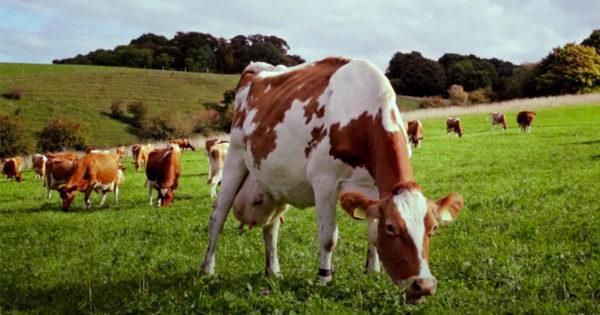Burger King, Cargill, and the National Fish and Wildlife Foundation (NFWF) are providing cattle ranchers in a six-state region with technical support and resources to help cut greenhouse gas emissions.
The five-year Southern Great Plains effort, which includes $5 million from Cargill and Burger King, a subsidiary of Restaurant Brands International, as well as $5 million in matching funds from NFWF, has the potential to sequester 360,000 tons of CO2 equivalent year.
On ranches in Colorado, Kansas, Nebraska, New Mexico, Oklahoma, and Texas, the alliance is focusing on using regenerative agricultural approaches to improve grassland management and conserve ecosystems.
On April 12, NFWF awarded three grants to ranchers in Kansas, New Mexico, and Texas, financed by Burger King and Cargill, to support plans to apply grassland management strategies customized to their area.
Burger King's president, Tom Curtis, stated that as one of North America's largest buyers of beef, cooperating with Cargill and NFWF allows them to expedite ambitious efforts to cut greenhouse gas emissions in their beef supply chain.
The conservation initiatives, according to Jeff Trandahl, executive director and chief executive officer of NFWF, aim to apply grazing techniques particular to each region, as well as maintain and restore grasslands and the wildlife species they sustain.
The projects, according to Trandahl, will make grasslands more resilient to changing conditions, and they hope to expand this work by connecting conservation experts with ranchers who want to make a real difference.
To maximize the benefits of currently used practices, Heather Tansey, Cargill's vice president of environmental sustainability, said that reducing the environmental impact of the beef supply chain requires attention and commitments on multiple fronts.
Cross-industry collaboration, according to Cargill, allows beef production to preserve and positively impact land and resources. Burger King, Cargill, and the National Farmers Union Foundation (NFWF) are all committed to making beef production more sustainable, and have already implemented similar sustainable agriculture programs across North America to optimize beef production that is healthy for customers, regenerative for the land, and profitable for farmers.



 Russian Stocks End Mixed as MOEX Index Closes Flat Amid Commodity Strength
Russian Stocks End Mixed as MOEX Index Closes Flat Amid Commodity Strength  Oil Prices Slide on US-Iran Talks, Dollar Strength and Profit-Taking Pressure
Oil Prices Slide on US-Iran Talks, Dollar Strength and Profit-Taking Pressure  How is Antarctica melting, exactly? Crucial details are beginning to come into focus
How is Antarctica melting, exactly? Crucial details are beginning to come into focus  U.S. Stock Futures Slide as Tech Rout Deepens on Amazon Capex Shock
U.S. Stock Futures Slide as Tech Rout Deepens on Amazon Capex Shock  Global PC Makers Eye Chinese Memory Chip Suppliers Amid Ongoing Supply Crunch
Global PC Makers Eye Chinese Memory Chip Suppliers Amid Ongoing Supply Crunch  Drug pollution in water is making salmon take more risks – new research
Drug pollution in water is making salmon take more risks – new research  South Africa Eyes ECB Repo Lines as Inflation Eases and Rate Cuts Loom
South Africa Eyes ECB Repo Lines as Inflation Eases and Rate Cuts Loom  Nvidia, ByteDance, and the U.S.-China AI Chip Standoff Over H200 Exports
Nvidia, ByteDance, and the U.S.-China AI Chip Standoff Over H200 Exports  What’s so special about Ukraine’s minerals? A geologist explains
What’s so special about Ukraine’s minerals? A geologist explains  Asian Stocks Slip as Tech Rout Deepens, Japan Steadies Ahead of Election
Asian Stocks Slip as Tech Rout Deepens, Japan Steadies Ahead of Election  Fed Governor Lisa Cook Warns Inflation Risks Remain as Rates Stay Steady
Fed Governor Lisa Cook Warns Inflation Risks Remain as Rates Stay Steady  American Airlines CEO to Meet Pilots Union Amid Storm Response and Financial Concerns
American Airlines CEO to Meet Pilots Union Amid Storm Response and Financial Concerns  LA fires: Long-term exposure to wildfire smoke is poorly understood − and a growing risk
LA fires: Long-term exposure to wildfire smoke is poorly understood − and a growing risk  Dow Hits 50,000 as U.S. Stocks Stage Strong Rebound Amid AI Volatility
Dow Hits 50,000 as U.S. Stocks Stage Strong Rebound Amid AI Volatility  Tencent Shares Slide After WeChat Restricts YuanBao AI Promotional Links
Tencent Shares Slide After WeChat Restricts YuanBao AI Promotional Links  Alphabet’s Massive AI Spending Surge Signals Confidence in Google’s Growth Engine
Alphabet’s Massive AI Spending Surge Signals Confidence in Google’s Growth Engine 































